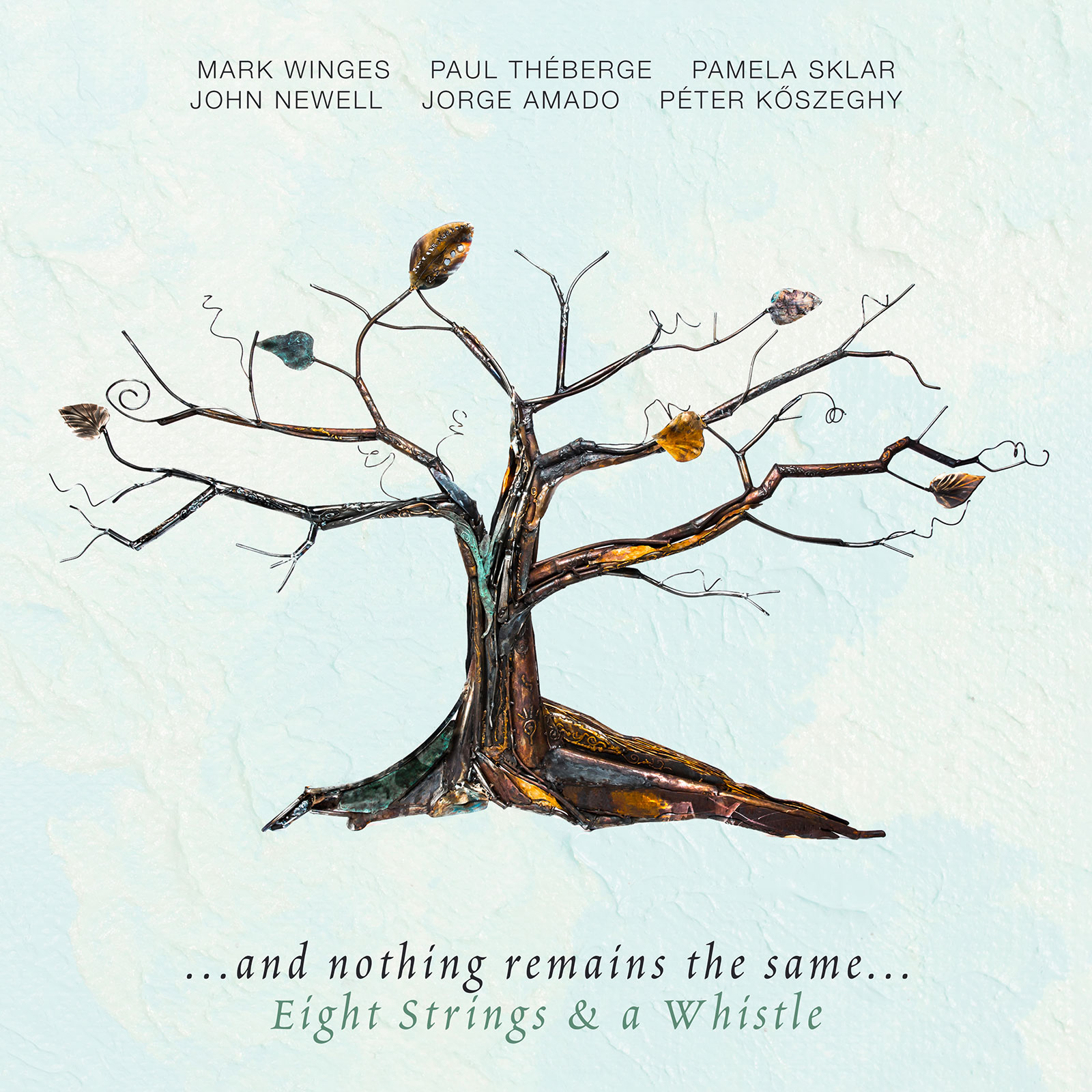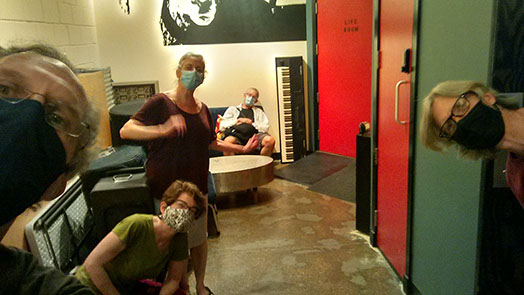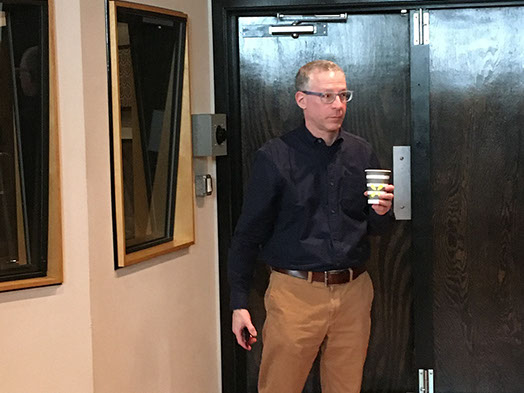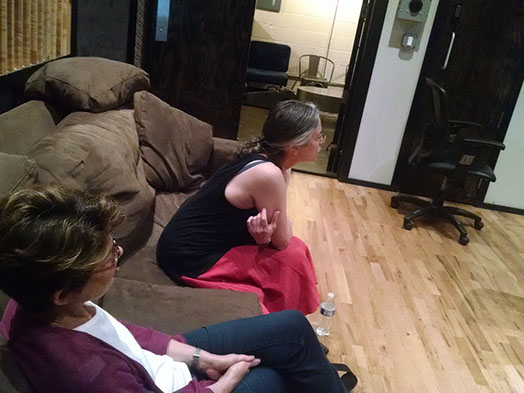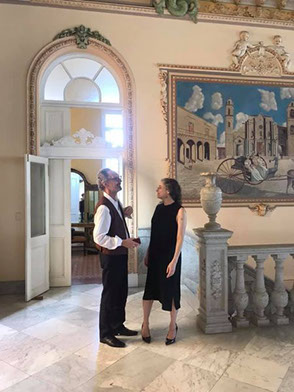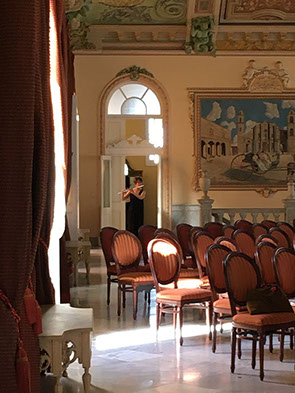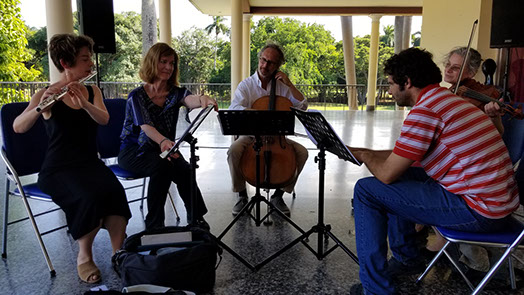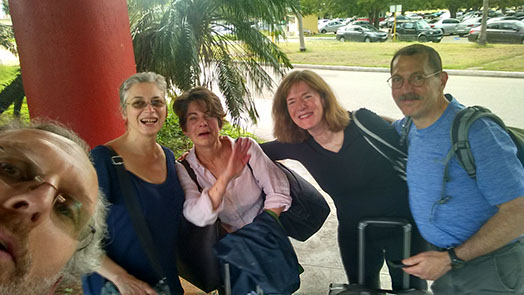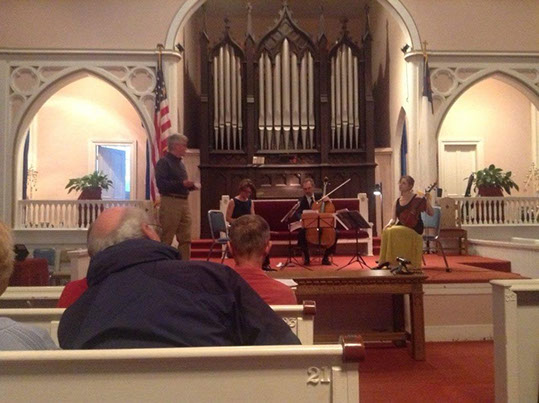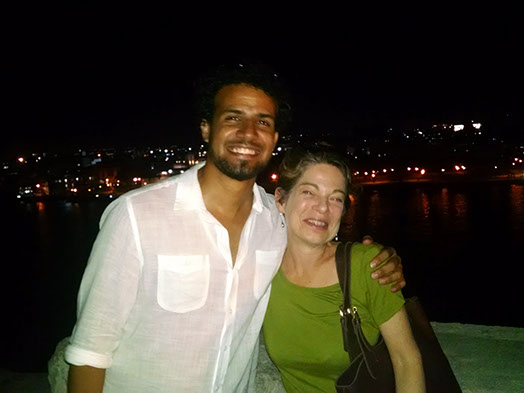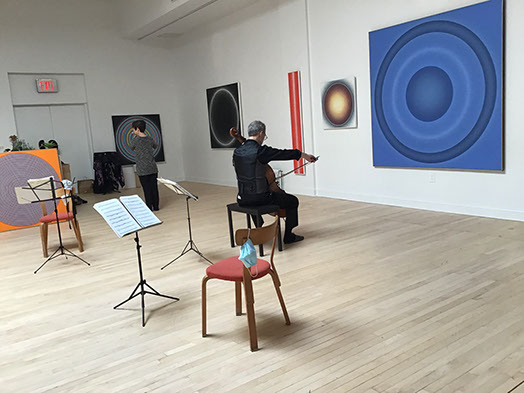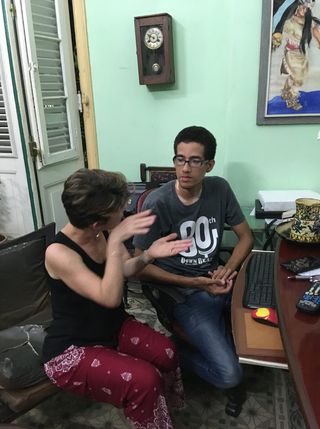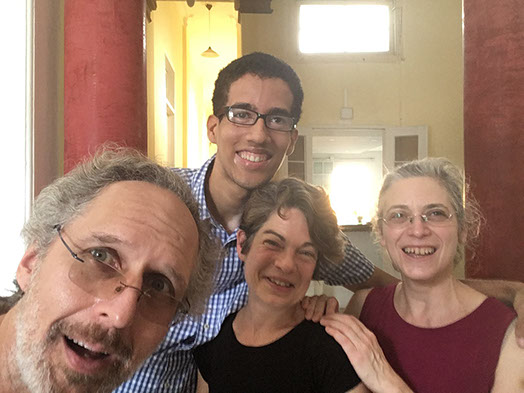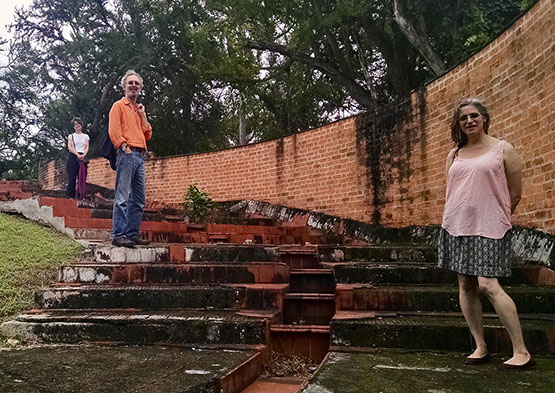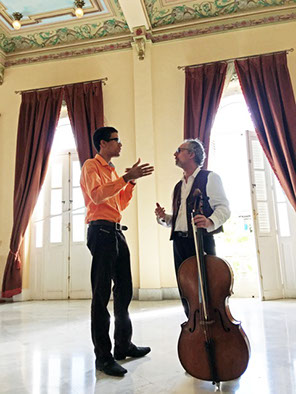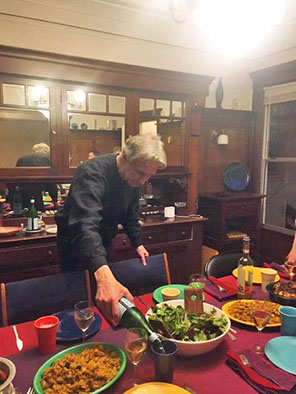And Nothing Remains the Same
Mark Winges composer
Paul Théberge composer
Pamela Sklar composer
John Newell composer
Jorge Amado composer
Péter Kőszeghy composer
Eight Strings & a Whistle
On …AND NOTHING REMAINS THE SAME… from Eight Strings & a Whistle and Ravello Records, the flute-viola-cello trio explores the constant cycle of transformation that defines human existence. Since 1998, Eight Strings & a Whistle has earned a reputation for championing Baroque, Classical, and Romantic repertoire while also premiering new works from living composers. …AND NOTHING REMAINS THE SAME… focuses on the music of contemporary composers, the majority of whom composed their pieces specifically for the Trio. The performances heard on the album offer a rewarding and intimate listening experience, with a deeply evocative sound rife with stark dissonance and rich harmony.
Listen
Stream/Buy
Choose your platform
Track Listing & Credits
| # | Title | Composer | Performer | |
|---|---|---|---|---|
| 01 | Loki's Lair | Mark Winges | Eight Strings & a Whistle | Suzanne Gilchrest, flute and alto flute; Ina Litera, viola; Matt Goeke, cello | 6:48 |
| 02 | Maqām: I. Moderately Slow | Paul Théberge | Eight Strings & a Whistle | Suzanne Gilchrest, flute and alto flute; Ina Litera, viola; Matt Goeke, cello | 3:11 |
| 03 | Maqām: II. Moderately | Paul Théberge | Eight Strings & a Whistle | Suzanne Gilchrest, flute and alto flute; Ina Litera, viola; Matt Goeke, cello | 1:45 |
| 04 | Maqām: III. Slowly | Paul Théberge | Eight Strings & a Whistle | Suzanne Gilchrest, flute and alto flute; Ina Litera, viola; Matt Goeke, cello | 3:24 |
| 05 | Maqām: IV. Moderately | Paul Théberge | Eight Strings & a Whistle | Suzanne Gilchrest, flute and alto flute; Ina Litera, viola; Matt Goeke, cello | 2:12 |
| 06 | Maqām: V. Slow and Somewhat Freely | Paul Théberge | Eight Strings & a Whistle | Suzanne Gilchrest, flute and alto flute; Ina Litera, viola; Matt Goeke, cello | 3:54 |
| 07 | 2 Journeys: No. 1, Third Eye | Pamela Sklar | Eight Strings & a Whistle | Suzanne Gilchrest, flute and alto flute; Ina Litera, viola; Matt Goeke, cello | 6:15 |
| 08 | 2 Journeys: No. 2, The Inward Journey | Pamela Sklar | Eight Strings & a Whistle | Suzanne Gilchrest, flute and alto flute; Ina Litera, viola; Matt Goeke, cello | 5:46 |
| 09 | And Nothing Remains the Same | John Newell | Eight Strings & a Whistle | Suzanne Gilchrest, flute and alto flute; Ina Litera, viola; Matt Goeke, cello | 6:46 |
| 10 | Eidos II | Jorge Amado | Eight Strings & a Whistle | Suzanne Gilchrest, flute and alto flute; Ina Litera, viola; Matt Goeke, cello | 8:33 |
| 11 | Souls (Live) | Péter Kőszeghy | Eight Strings & a Whistle | Suzanne Gilchrest, flute and alto flute; Ina Litera, viola; Matt Goeke, cello | 12:45 |
SPECIAL THANKS
Nothing happens in a vacuum. Special thanks to all of our supporters, plus one very special angel who made this recording possible. Special thanks to Chris Benham for reopening his studio as soon as he could in the midst of a world-wide pandemic, John Frisch for keeping us on track, both musically and grammatically, and Rick Van Benschoten for figuring out how to do post-production remotely and having a good sense of humor through it all.
Souls recorded live at the Tenri Cultural Institute, New York NY on November 27, 2017
Recording Session Engineer Peter Weitzner
All other tracks recorded February 18, June 16, July 20, 2020 and January 21, 2021 at Big Orange Sheep, Brooklyn NY
Recording Session Engineer Chris Benham
Editing and Mixing Engineer Rick Van Benschoten
Produced by John Frisch, Rick Van Benschoten, and Eight Strings & a Whistle
Mastering Shaun Michaud
Cover image Richard Cawley and Gustav Sculptor
Executive Producer Bob Lord
Executive A&R Sam Renshaw
A&R Director Brandon MacNeil
A&R Quinton Blue
VP of Production Jeff LeRoy
Audio Director Lucas Paquette
VP, Design & Marketing Brett Picknell
Art Director Ryan Harrison
Design Edward A. Fleming
Publicity Patrick Niland, Sara Warner
Artist Information
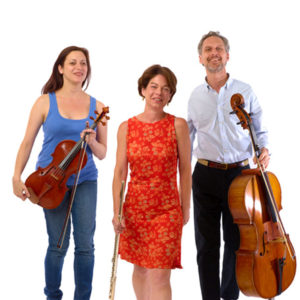
Eight Strings & a Whistle
Eight Strings & a Whistle has been committed to presenting and expanding the repertoire for the unique combination of flute, viola, and cello since 1998. A cutting-edge presence, the Trio champions Baroque, Classical, and Romantic repertoire and collaborates regularly with a wide roster of living composers, premiering and performing their pieces throughout the concert season.

Mark Winges
Mark Winges was born in Louisville KY and currently resides in San Francisco, where he has been resident composer/advisor for Volti since 1990. He was also composer-in-residence for the San Francisco Choral Artists in the 2012–2013 season. He is a graduate of the College-Conservatory of Music in Cincinnati, SF State University, and has studied at the Musikhögskolan in Stockholm, Sweden with composer Arne Mellnäs.
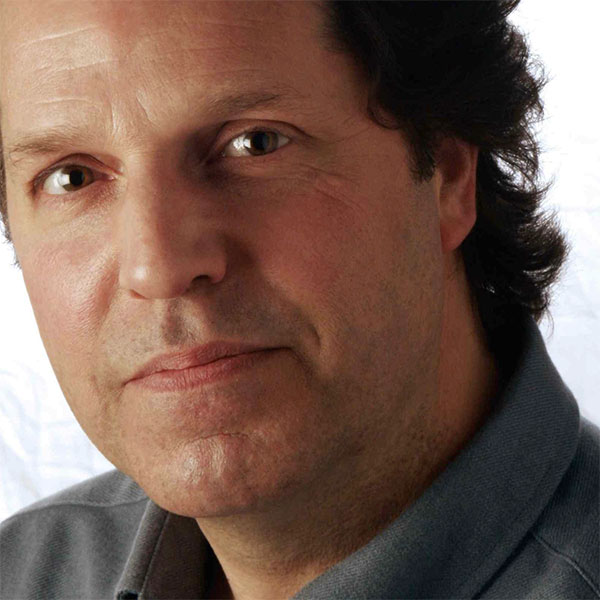
Paul Théberge
Paul Théberge was born in Brunswick, Maine. In his late teens he emigrated to Canada, where he studied music at Dalhousie University in Halifax, NS, and later, Communications and Media Studies at Concordia University in Montreal. As a composer, he has created works for a variety of media and has received awards from the Canada Council for the Arts and from the National Endowment for the Arts (United States).
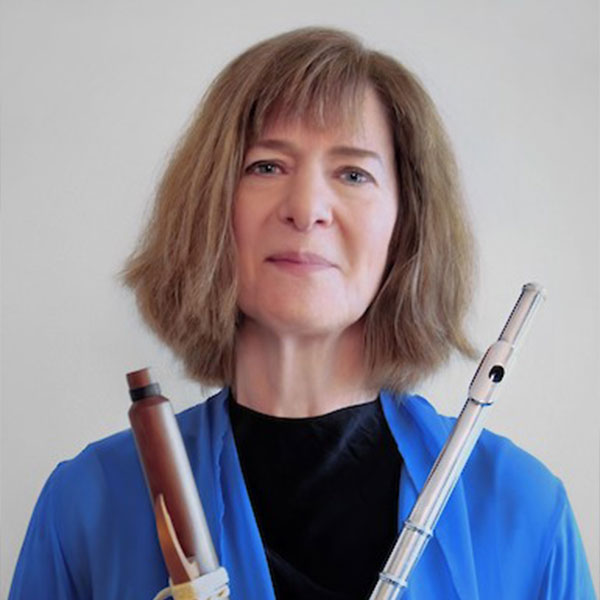
Pamela Sklar
Born in New York City and based in Westchester County NY, Pamela Sklar collaborates as flutist and composer with various ensembles co-featuring classical, pop-rock, blues, meditative, and improvised music. Her critically acclaimed performances have included international tours and national/regional appearances with Claude Bolling, Dave Brubeck, Alan Hovhaness, Jack Wilkins, and Tony Bennett.
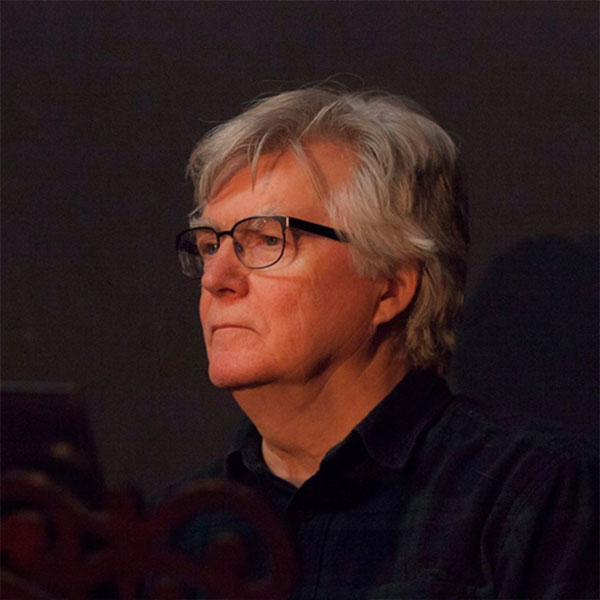
John Newell
Born in Charlotte, North Carolina, John Newell graduated from Duke University, having pursued studies in composition, piano, and conducting. He earned his M.F.A from California Institute of the Arts, where his primary teacher was Mel Powell. Newell completed his formal training at SUNY Buffalo, working with Morton Feldman, as recipient of the first Edgard Varèse Fellowship. Since earning his Ph.D. in 1979, he has pursued an independent creative path.
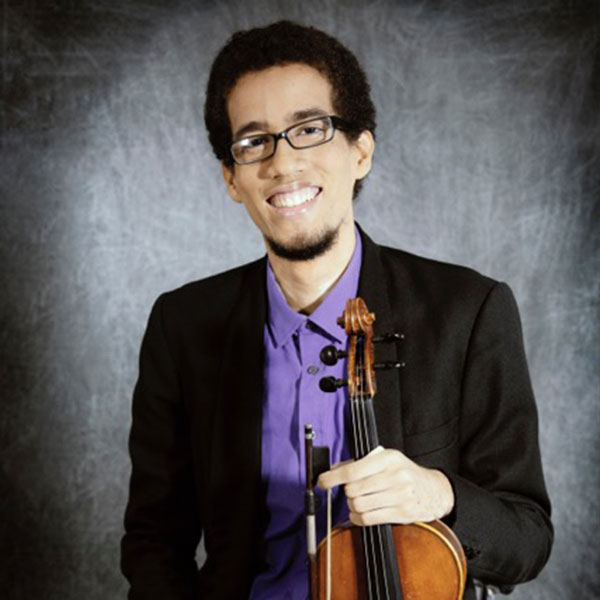
Jorge Amado
Jorge Amado is an up-and-coming young Cuban composer and violinist. Since winning the 8SW Composer Competition, Amado has received commissions for his work by ensembles such as the Catalyst Quartet and organizations such as the Centro Nacional de la Música de Concerto de Cuba. He has received numerous awards from such competitions as Mexico’s 2019 International Composition Competition for String Quartet and the Ojalá 2018 Symphonic Composition Award.
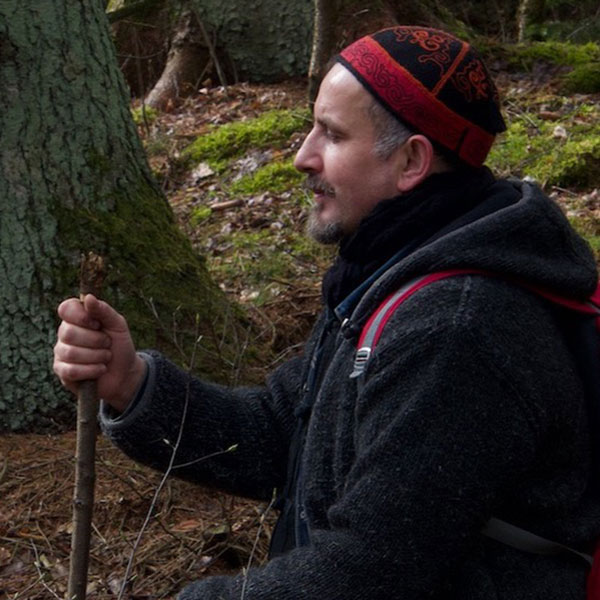
Péter Kőszeghy
Péter Kőszeghy’s work is inspired by Greek mythology and Hungarian Shamanism — and the connection between the physical and spiritual worlds. His interests lie in the beauty, the colors, and the expression of the sensibility and delicacy of music itself.
Notes
Change is constant.
Whether happening on a scale of geologic time, the span of one human lifetime, or even of immediate experience, everything is changing. The immediacy of shape-shifting illusion, lifetime “milestones,” even a five-minute trip to the grocery store — we experience change all the time.
And in that change, there is transformation; we’re different now, even from that trip to the grocery store, than we were just minutes ago. Yet, despite the changes, we’re still who we are. The same, yet different. Both, And.
This album is a reflection on this circle — change, transformation, and return. We hope you enjoy the journey with us.
— 8SW

